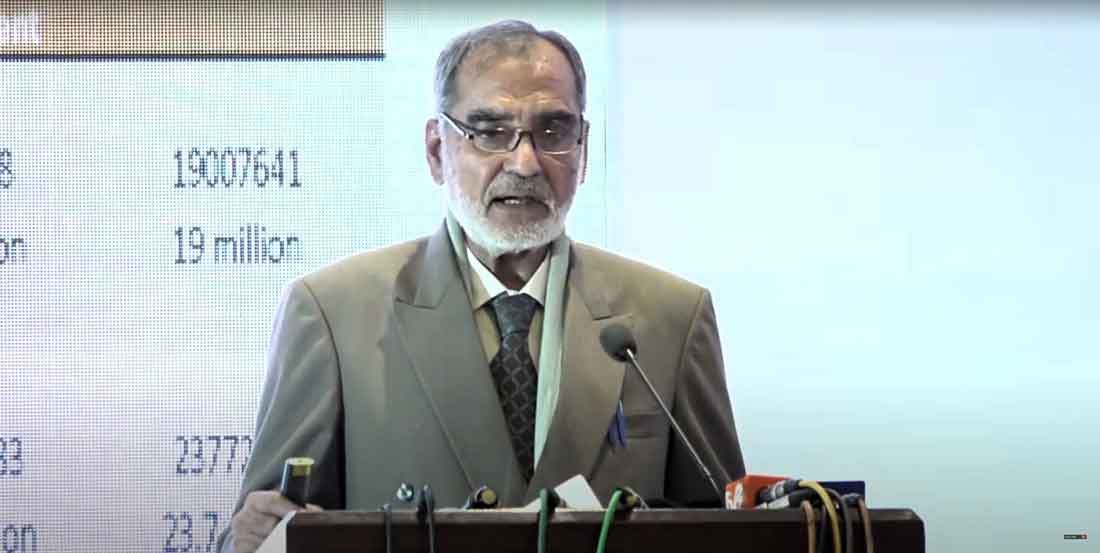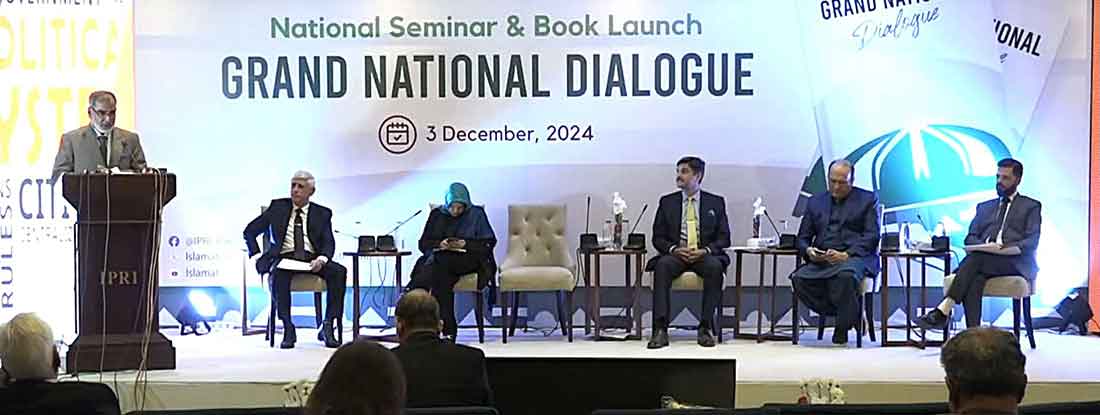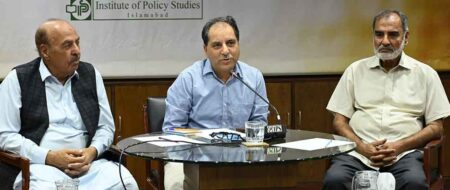‘Political and Governance Systems’ – Chairman IPS outlines IPS’ report at IPRI’s Grand National Dialogue
Chairman IPS Khalid Rahman was invited by Islamabad Policy Research Institute (IPRI) on December 3, 2024 to participate in a seminar titled ‘Grand National Dialogue’, an event also featuring the launch of a book with the similar title, encapsulating insights, analysis and expert recommendations over key issues facing Pakistan.
The event also included presentations of reports contributed to the publication by partnering institutions, including IPS.
Sharing insights from the IPS’ report titled ‘Political and Governance Systems’ on the occasion, Khalid Rahman apprised that the report proposes adopting an electoral system of proportional representation, as the existing ‘First-Past-The-Post’ system has not proved efficient and does not offer necessary representation to all segments of society.

On the other hand, the system of proportional representation, different models of which are already in use in over 90 countries, offers a much more just and inclusive model. In the context of Pakistan, the administrative divisions may be designated as constituencies for the National Assembly, and the candidates aspiring to represent the people would be selected on party basis. Candidates will receive votes on the back of party’s program and announced agenda. The eventual representation, as a result, would be proportional to the percentage of the votes received.
Rahman also stressed the need of reestablishing political nurseries, such as student unions, as they play an integral role in nurturing future political leaders and workers. He pointed out that over past 20-25 years, Pakistan has lacked such political nurseries which serve as training grounds for emerging political leaders, depriving them of the essential practical coaching that is needed to develop critical skills like strategic decision-making, conflict resolution, tolerance, negotiation, and service delivery.
The absence and irregularity of local body elections, despite its constitutional and legal provisions, has also not helped the cause, Rahman lamented. Even when these platforms were available, they were not adequately empowered, preventing them from functioning efficiently.
Rahman also laid emphasis on character building of youth through sports. He said that sports teaches athletes to be competitive, resilient, as well as to learn to cope with the defeat. Cultivating these qualities in youth and future leaders will contribute to a more stable and efficient political ecosystem, ultimately helping to overcome the governance challenges, he said.
The speaker called for structural reforms, empowerment of local institutions, nurturing of political leadership at every level, and adopting a more inclusive approach, in order to cultivate an efficient political system that lasts long.












